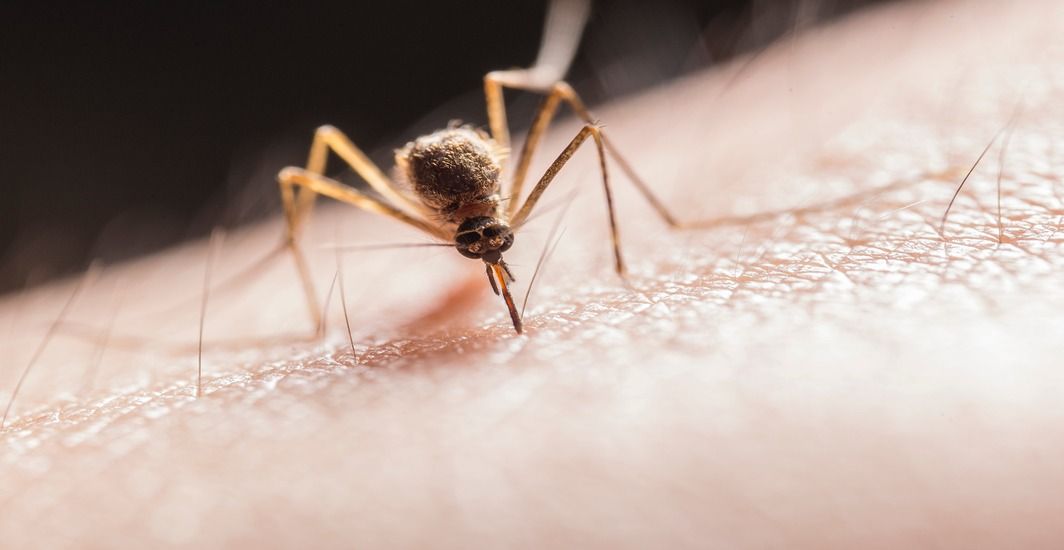General Health
How Harmful is Zika Virus?
5 min read
By Apollo 24|7, Published on - 08 December 2023
Share this article
0
0 like

In recent years, the Zika virus has emerged as a significant global health concern, capturing headlines and sparking widespread concern. Although the number of Zika fever cases worldwide has dropped considerably since 2017, more than 89 nations have confirmed that the mosquito-borne virus is still active. This mosquito-borne virus has been associated with severe health implications, especially for pregnant women and their unborn children.
In this article, we will delve into the various aspects of the Zika virus, its transmission, symptoms, and ongoing efforts to mitigate its effects.
What is Zika Virus?
Zika fever is usually transmitted through infected Aedes mosquito bites, specifically Aedes aegypti and Aedes albopictus. According to recent studies, about half of the world population is at risk of the viral disease. The high risk can be attributed to the fact that the same vectors, Aedes aegypti and Ae. albopictus, transmit dengue fever. While these mosquitoes are commonly found in subtropical and tropical regions, the global spread of the Zika virus has raised alarms due to increased travel and changing climate patterns.
How is Zika Virus Transmitted?
The transmission makes Zika fever a unique and challenging public health concern. Zika virus transmission is not limited to mosquito bites.It can also be transmitted through:
Sexual/physical contact
Blood transfusion
From mother to child, during pregnancy or childbirth
Symptoms of Zika Virus
- Asymptomatic: The majority of Zika virus infections are asymptomatic, meaning infected individuals may not show any noticeable symptoms.
- Mild and Minimal Effects: Fever (mild, lasts 2-7 days), rashes such as morbilliform (papules) or scarlatiniform (micro papules), pain in small joints of the hands and feet, and conjunctivitis (including tearing, non-purulent discharge, and eye discomfort) are among the more common but usually mild symptoms.
Note: These symptoms can be easily confused with those of other mosquito-borne illnesses like dengue fever (DENV), making accurate diagnosis a complex task.
Impact on Pregnant Women and Unborn Children
One of the most alarming aspects of the Zika virus is its association with severe birth defects. Pregnant women infected with the virus face an increased risk of giving birth to babies with microcephaly, a condition characterised by abnormally small heads and underdeveloped brains. This devastating consequence prompted global health organisations like the World Health Organisation to issue warnings in 2016, along with guidelines for pregnant women travelling to Zika-affected areas.
Other Diseases Linked to Zika Virus
The multifaceted impact of the Zika virus on human health has prompted a closer examination of the diverse health risks linked to Zika fever.
1. Guillain-Barré Syndrome
Scientific studies suggest that individuals infected with Zika fever may face an increased risk of developing Guillain-Barré syndrome. GBS is characterised by the immune system attacking the nerves, leading to muscle frailty and, in severe cases, paralysis.
2. Blood or Brain Disorders
In rare instances, Zika fever can result in a serious brain illness causing swelling of the brain or spinal cord. It might trigger a medical condition that causes bleeding, bruises, or poor blood clotting.
Global Response and Prevention of Zika Virus
The public health threat posed by the Zika virus has necessitated a coordinated global response. The strategies being implemented worldwide to prevent Zika transmission include:
1. Vector Control
Since Aedes mosquitoes are the primary vectors for Zika virus transmission, extensive efforts are underway to control mosquito populations. This includes the use of insecticides, community education programmes, and the development of genetically modified mosquitoes to reduce their ability to transmit the virus.
2. Research and Vaccine Development
Scientific research has played a pivotal role in understanding the Zika virus and developing preventive measures. Several vaccines are currently in development, with ongoing clinical trials assessing their safety and efficacy.
While there are no approved vaccines available yet, a vaccine is currently undergoing a "first in human" Phase I research after exhibiting favourable effects in animal study data. One of these unapproved vaccines in development is the Purified inactivated vaccine (ZPIV), which is based on the technology that has been used to develop an effective vaccine against the Japanese Encephalitis Virus.
3. Pregnancy Guidelines
To mitigate the risk of Zika virus-related birth defects, health authorities recommend that pregnant women avoid travelling to areas with active Zika fever transmission. Additionally, couples planning a pregnancy are advised to take precautions to prevent sexual transmission if one or both partners have been exposed to the virus.
Conclusion
The Zika virus poses a significant threat to global health, particularly for pregnant women and their unborn children. While efforts are underway to control mosquito populations, develop vaccines, and provide guidelines for at-risk populations, the complexity of the virus continues to present challenges. Vigilance, research, and international collaboration are paramount in addressing the multifaceted nature of Zika fever and preventing its further spread.
FAQs
Q1. Can Zika virus be transmitted through casual contact?
No, Zika virus is primarily transmitted through the bite of infected mosquitoes. However, sexual transmission is possible, and precautions should be taken, especially by pregnant couples.
Q2. Is there a vaccine for Zika virus?
Several Zika virus vaccines are in development, with some in clinical trials. However, as of now, there is no approved vaccine for the disease.
Q3. How long does Zika fever stay in the body?
The duration of Zika’s presence in the body varies. In blood, it is usually detectable for a few days to a week, but it may persist longer in certain body fluids.
Q4. Can Zika virus be transmitted from a pregnant woman to her baby after birth?
There have been rare cases of Zika virus transmission from a mother to her baby through breastfeeding or close contact. Yet, the risk appears to be significantly lower compared to transmission during pregnancy.
Q5. Are there specific regions or countries more prone to Zika fever or dengue fever outbreaks, and should travellers be concerned?
Zika virus outbreaks have been reported in various regions, especially in tropical and subtropical areas. Travellers, particularly pregnant women, are advised to stay informed about current outbreaks, take preventive measures, and follow guidelines issued by health authorities when planning trips to affected regions.
General Health
Leave Comment
Recommended for you

General Health
Do You Know That Your Body Can Harm Itself? Know How You Can Reduce That Risk!
Autoimmune diseases develop on their own and can be life-threatening. Read to know the early signs and the ways to prevent them.

General Health
Oral Rehydration Salts: A Safe and Effective Way to Treat Dehydration
Learn about the benefits of oral rehydration salts (ORS) for treating dehydration. Discover how ORS can quickly replenish electrolytes and fluids lost during illness or exercise, promoting a faster recovery.

General Health
Why Is It Important To Fast Before Specific Blood Tests?
Discover the reasons behind fasting before blood tests, the tests that require it, and how to prepare for them
Subscribe
Sign up for our free Health Library Daily Newsletter
Get doctor-approved health tips, news, and more.
Visual Stories

Could There Be More to Your Snore?
Tap to continue exploring
Recommended for you

General Health
Do You Know That Your Body Can Harm Itself? Know How You Can Reduce That Risk!
Autoimmune diseases develop on their own and can be life-threatening. Read to know the early signs and the ways to prevent them.

General Health
Oral Rehydration Salts: A Safe and Effective Way to Treat Dehydration
Learn about the benefits of oral rehydration salts (ORS) for treating dehydration. Discover how ORS can quickly replenish electrolytes and fluids lost during illness or exercise, promoting a faster recovery.

General Health
Why Is It Important To Fast Before Specific Blood Tests?
Discover the reasons behind fasting before blood tests, the tests that require it, and how to prepare for them